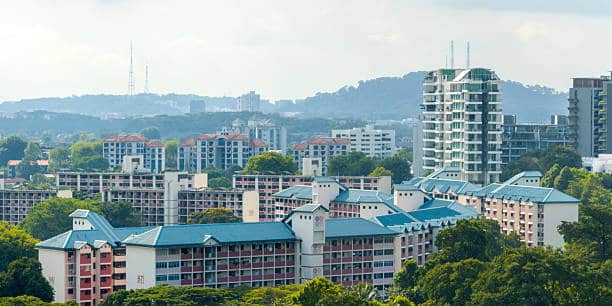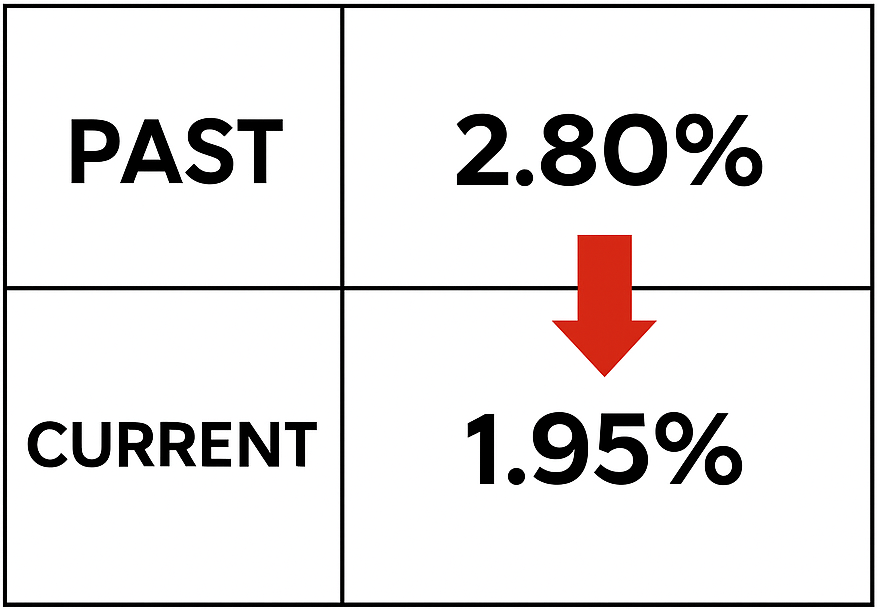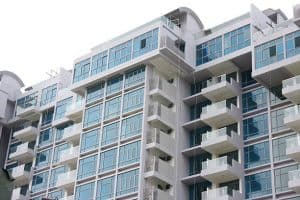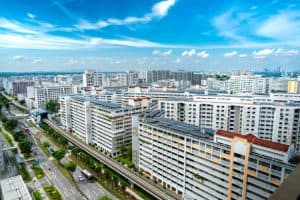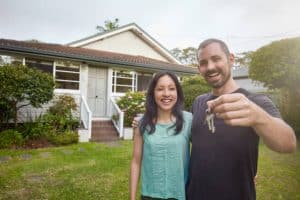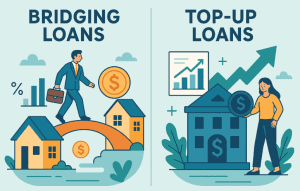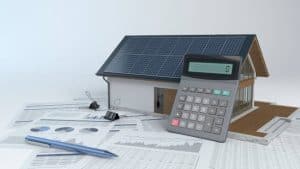Looking for a home in Singapore but not sure what the difference is between an HDB, EC, or condo? You’re not alone. With so many housing types available, it can get confusing fast.
In this guide, we’ll break down all the types of housing in Singapore — from public flats to private properties — and help you figure out which suits your needs, budget, and future plans.
Let’s make sense of it all, step by step.
Overview of Housing Types in Singapore
Singapore’s property landscape offers a wide range of housing types — and knowing what’s out there can save you time, money, and stress.
Whether you’re eyeing an HDB flat or a private condo, understanding the differences helps you make smarter decisions based on eligibility, price, and lifestyle needs.
Why Are Housing Types Important for Buyers?
Choosing the right housing type in Singapore isn’t just about space — it affects:
- Loan eligibility (some properties qualify for HDB loans, others don’t)
- CPF usage and available housing grants
- Ownership restrictions (especially for PRs and foreigners)
- Resale potential and investment value
Expert tip: Think long term. A slightly smaller HDB in a better location might outperform a big condo in the middle of nowhere.
Public vs Private vs Hybrid Housing: Key Differences
Here’s a breakdown of the three main types of housing in Singapore, based on ownership model and flexibility:
Housing Types in Singapore: Public, Private & Hybrid Comparison
| Housing Type | Examples | Who Can Buy | Key Features |
|---|---|---|---|
| Public Housing | 2-Room Flexi, 3-Room, 5-Room HDBs | SCs, PRs (resale only) | Affordable, CPF grants, must meet eligibility |
| Private Housing | Condos, Landed Homes, Shophouses | SCs, PRs, Foreigners | No grants, higher cost, more freedom |
| Hybrid Housing | ECs, DBSS Flats | SCs (some PR eligibility) | Condo-style with restrictions |
Who Can Buy What in Singapore? (SCs, PRs, Foreigners)
Your citizenship or residency status matters more than you think:
- Singapore Citizens: Can buy all housing types — from HDBs to landed properties
- Permanent Residents (PRs): Can buy resale HDBs (as a couple), ECs, and private condos
- Foreigners: Limited to private condos and need special approval for landed homes
Pro tip: If you’re unsure whether you qualify for a specific property type or mortgage plan, it’s worth speaking with a trusted mortgage broker in Singapore before you commit.
Public Housing in Singapore: All HDB Types Explained
Public housing in Singapore is more than just basic flats — it’s where over 80% of residents live. Built by the Housing & Development Board (HDB), these flats range from compact units for singles and seniors to spacious family-sized homes.
Understanding the different types of HDB flats in Singapore can help you plan better, apply for the right grants, and avoid overpaying.
2-Room Flexi, 3-Room, 4-Room, 5-Room and Executive Flats
HDB flats come in several standard configurations. Each type is designed for different family sizes and life stages:
HDB Flat Types in Singapore: Size, Use Case & Availability
| Flat Type | Typical Size (sqm) | Best For | Availability |
|---|---|---|---|
| 2-Room Flexi | Type 1: ≤45 Type 2: 46–55 | Singles, seniors | BTO & resale (shorter leases for seniors) |
| 3-Room | ~60–65 | Couples, small families | BTO & resale |
| 4-Room | ~90 | Young families | BTO & resale |
| 5-Room | ~110 | Larger or multi-gen families | BTO & resale |
| Executive Flat | ~130 | Big families, study space needs | Resale only (discontinued) |
What Is the Difference Between DBSS, HUDC and Standard HDBs?
These “special” HDB types can be confusing, so here’s a simple comparison:
Types of Public Housing: DBSS vs HUDC vs Standard HDB
| Flat Type | Launched By | Still Built Today? | Key Features |
|---|---|---|---|
| Standard HDB | HDB | Yes | Affordable, basic finishes, eligible for CPF grants and HDB loans |
| DBSS | Private developers | No (phased out) | Condo-like design, but governed by HDB rules; higher prices, no facilities |
| HUDC | Government (pre-HDB) | No (converted to private) | Larger than HDBs, now fully privatised, no grants or subsidies |
If you’re eyeing resale DBSS or HUDC units, it’s best to compare private property loans with HDB options to see which gives you better terms.
Special Flat Types: 3Gen, Jumbo, Maisonette (2025 Status)
These are less common but still available in the resale market or special launches:
3Gen Flats
- Designed for multi-generational families
- Includes an extra bedroom and attached bathroom
- Available only to SC families with parents living in
Jumbo Flats
- Formed by merging two adjoining units
- Mostly found in mature towns like Woodlands and Yishun
- Great for big families, but limited supply
Maisonettes
- Two-storey HDBs (yes, really!)
- No longer built but highly sought-after in the resale market
- Large (up to 160 sqm) with balcony space
Pro tip: These special flat types may not be for everyone, but they’re gold if you’re after space — just be prepared to pay more upfront and for renovations.
Spotlight on 2-Room Flexi: Type 1 vs Type 2
Among all the types of HDB flats in Singapore, the 2-Room Flexi is often overlooked — but it can be a smart choice for the right buyer.
Introduced to serve seniors and smaller households, this flat type is compact, affordable, and comes in two configurations: Type 1 and Type 2.
Understanding the difference between the two can help you avoid missteps, especially if you’re planning for retirement, buying solo, or looking for a low-commitment first home.
Size and Layout Comparison
Here’s a quick breakdown of the differences between Type 1 and Type 2 layouts:
2-Room Flexi Flat Comparison: Type 1 vs Type 2
| Type | Typical Size (sqm) | Layout | Main Feature |
|---|---|---|---|
| Type 1 | ≤45 | 1 bedroom, 1 bathroom | Smaller footprint, easier upkeep |
| Type 2 | 46–55 | Larger living/dining space | More comfortable for long-term living |
Expert tip: Use our mortgage loan repayment calculator to estimate monthly installments based on flat type and loan amount.
Who Qualifies for Type 1 vs Type 2?
Eligibility depends on both age and household structure:
- 👵 Seniors aged 55 and above:
Can buy either Type 1 or Type 2 on shorter leases (15–45 years) under the Flexi Scheme. - 👤 Singles aged 35+:
Eligible for Type 2 flats under the Single Singapore Citizen Scheme, usually on standard 99-year leases. - 👨👩👦 Families or couples:
Generally only eligible for Type 2, unless applying under specific schemes designed for seniors.
Note: Type 1 flats are typically only offered to elderly buyers, especially in BTO launches within mature estates.
Best Use Cases for Singles, Seniors & Budget Buyers
2-Room Flexi flats aren’t for everyone — but in the right situation, they’re a smart pick:
- Seniors looking to right-size after selling a larger flat
- Singles buying their first home on a tighter budget
- Buyers who want lower monthly repayments and plan to use CPF heavily
- Couples planning short stays before upgrading
Personal take: I’ve seen seniors opt for Type 2 simply for that extra bit of comfort. For singles, it’s often about choosing a location they love over a flat they don’t need.
Need advice? Speak to a trusted mortgage broker in Singapore who can help you assess whether a bank loan or HDB loan fits you better.
Private Housing Types in Singapore
Private properties in Singapore offer more freedom, exclusivity, and lifestyle perks — but they also come with higher price tags and stricter financing requirements.
From mass-market condos to Good Class Bungalows (GCBs), knowing the different types of private housing in Singapore helps you choose a home that matches your lifestyle and financial goals.Tip: Planning to buy private? Check out your options for a private property loan in Singapore early — approval can take longer than HDB loans.
Condominiums: Mass-Market, Mid-Tier & Luxury
Condos are by far the most common form of private housing. They come with full facilities — pools, gyms, BBQ pits — and are found islandwide.
Mass-Market Condos
- Found in OCR (Outside Central Region)
- More affordable, ideal for first-time upgraders
- Usually located near MRTs or integrated hubs
Mid-Tier Condos
- Located in RCR (Rest of Central Region)
- Better layouts, finishes, and amenities
- Slightly higher pricing due to location
Luxury Condos
- Prime locations in CCR (Core Central Region)
- Branded fittings, concierge services, top-tier designs
- Typically bought for prestige, lifestyle, or investment
Estimate your monthly repayments with our condo loan calculator before committing to a mortgage package.
Landed Homes: Terrace, Semi-Detached, Detached (Bungalows & GCBs)
Landed properties offer space, privacy, and long-term capital appreciation — but they’re also the most expensive housing type in Singapore.
Terrace Houses
- Share side walls with neighbours
- Most affordable landed option
- Typically 2–3 storeys, common in mature estates
Semi-Detached Homes
- Share one wall with a neighbour
- More privacy and land than terraces
- Popular among multi-generational families
Detached / Bungalows
- Standalone homes with full surrounding land
- More spacious, exclusive, and premium
- Include the ultra-rare Good Class Bungalows (GCBs) in Districts 10, 11, and 21+
Not all banks offer the same packages for landed property. Consider speaking with a mortgage broker in Singapore to compare exclusive deals.
Boutique and Alternative Homes: Shophouses, Cluster Homes, Walk-up Apartments
These private homes are less conventional but growing in popularity for their charm and unique layouts:
Shophouses
- Heritage conservation properties
- High ceilings, retro charm, often in CBD/Chinatown
- Great for dual-use (residential + commercial)
Cluster Homes
- Landed-style homes with condo-like facilities
- Ideal if you want space + shared security/pool
- Still considered strata-titled private housing
Walk-up Apartments
- No lifts, usually 3–5 storeys
- Found in older estates like Tiong Bahru
- More affordable, often with larger layouts
Buying unique homes? Financing might vary — use our mortgage loan calculator to plan ahead.
Hybrid Options: Executive Condominiums (ECs) & Cluster Homes
Not quite HDB, not fully private — hybrid housing types like Executive Condominiums (ECs) and Cluster Homes offer an in-between path for buyers who want the best of both worlds. They come with condo-like amenities, but certain restrictions apply — especially in the first few years of ownership.
If you’re looking to upgrade without breaking the bank, these options deserve serious attention.
What Makes ECs Different from Private Condos?
Executive Condominiums (ECs) are built by private developers but sold under HDB rules — at least initially.
Key differences between ECs and private condos:
- Price: ECs are usually 20–30% cheaper than private condos
- Eligibility: Only for SC/SC or SC/PR families within income limits ($16,000/month)
- Restrictions:
- 5-year Minimum Occupation Period (MOP)
- Can only sell to SCs/PRs during years 6–10
- Fully privatized only after year 11
- 5-year Minimum Occupation Period (MOP)
Check your financing options with our EC housing loan guide or compare to private property loan rates.
Expert tip: ECs in good locations (near MRTs or schools) often see a price jump after privatization, making them an attractive investment for upgraders.
How Do Cluster Homes Work in Singapore’s Context?
Cluster housing combines the privacy of landed homes with the shared amenities of condos — think of it as “strata-titled landed property.”
Common features of cluster homes:
- Private entrances and car parks (like terrace or semi-D houses)
- Shared pools, gyms, security — managed under a condo-style MCST
- Located mostly in suburban areas (e.g. Bukit Timah, Sengkang)
Use our mortgage loan calculator to estimate your monthly instalments based on your cluster home budget.
Note: Since they’re strata properties, cluster homes may not qualify for certain landed-home renovation subsidies or bank valuation perks.
Pros & Cons of Buying Hybrid Housing Types
Advantages & Disadvantages of Hybrid Housing Types in Singapore
| Pros | Cons |
|---|---|
| Lower entry price compared to private condos (especially for ECs) | ECs have a 5-year MOP and 10-year resale restrictions |
| Condo-style facilities with more space (ideal for families) | Financing and eligibility rules are stricter than standard condos |
| Good long-term capital appreciation (especially post-privatisation) | Cluster homes may feel less “exclusive” despite higher landed prices |
| Ideal for upgraders from HDB who want more privacy and amenities | Not all banks offer equal loan packages for hybrid homes |
Pro tip: Always compare both HDB loan options and bank loan rates to see which financing method suits your hybrid property best.
How to Choose the Right Housing Type for Your Needs
With so many housing options in Singapore — from BTOs and resale flats to ECs, condos, and landed homes — it’s easy to feel overwhelmed.
The trick is to match your budget, lifestyle, and goals with the right property type. It’s not about buying the biggest or flashiest — it’s about what fits you best.
Budget & Mortgage Eligibility Considerations
Before anything else, sort out the numbers. Knowing your loan eligibility helps narrow your options immediately.
Here’s what to consider:
- Your combined income – This affects your loan limit under TDSR or MSR guidelines
- Loan type – HDB loan vs bank loan: which gives you better flexibility or rates?
- Downpayment – Do you have enough CPF savings or cash for the minimum down?
- Interest rates – Compare across lenders for the best home loan rates in Singapore
Use our mortgage loan repayment calculator to estimate your monthly instalments before shortlisting units.
Expert tip: If you’re not sure how much you can borrow, get an in-principle approval before house-hunting. It saves time and avoids disappointment.
Space, Family Size, and Long-Term Goals
You don’t just buy for today — you buy for the next 5 to 10 years.
Here’s how to assess space needs:
- 👩❤️👨 Singles or couples:
- Consider 2- or 3-room HDBs, or compact condos near work/hubs
- Consider 2- or 3-room HDBs, or compact condos near work/hubs
- 👨👩👧👦 Young families:
- 4- or 5-room flats, ECs or mid-tier condos with amenities
- 4- or 5-room flats, ECs or mid-tier condos with amenities
- 👵 Multi-gen households:
- Maisonettes, 3Gen flats, or landed homes for privacy and space
- Maisonettes, 3Gen flats, or landed homes for privacy and space
- 🧳 Frequent movers or expats:
- Choose easily rentable units with good transport links
- Choose easily rentable units with good transport links
Tip: Don’t just think of square footage. Layout, storage, and flexibility (like space for WFH) matter more than you think.
Investment Potential vs Lifestyle Fit
Some buyers prioritise ROI, others care more about daily living comfort. Ask yourself:
- Capital appreciation → ECs nearing privatisation, undervalued resale condos
- Comfort & amenities → Condos with full facilities, cluster homes, larger 5-room flats
- Exit flexibility → HDB resale flats, freehold condos with low entry price
- Dual-use potential → Shophouses or walk-up units with commercial zoning
Personal take: Some of the best-performing homes I’ve seen aren’t luxury condos — they’re well-located 4-room flats near MRTs. Live smart, not just big.
FAQs on Housing Types in Singapore (2025)
Whether you’re eyeing a BTO flat, a resale HDB, or a private condo, the best choice comes down to your lifestyle needs, budget, and long-term plans. In 2025’s market, buying smart isn’t just about size or prestige — it’s about location, value, and flexibility.
Can PRs Buy Landed Property or Condos?
Yes, PRs can buy private condos in Singapore — both new and resale. However, landed properties are off-limits unless they get special approval from the Singapore Land Authority (SLA), which is very rare.
PRs also can’t buy new BTO flats, but may buy resale HDBs if both applicants are PRs. Always check your eligibility before committing.
Not sure where you stand? Speak with a trusted mortgage broker in Singapore to explore your options.
What’s the Lease Length for Each Property Type?
Most homes in Singapore come with 99-year leases, but some older or premium properties differ:
- HDB flats and ECs: 99 years
- Private condos: 99 years or freehold
- Landed homes: 99, 999 years or freehold
- 2-Room Flexi (for seniors): 15–45 years
- Resale flats: Remaining lease from the original 99
Are Certain Housing Types Being Phased Out?
Yes — some HDB types are no longer built, but still exist in the resale market:
- HUDC flats: All privatised
- DBSS flats: Discontinued in 2012
- Maisonettes: Phased out, now only via resale
- Jumbo flats: Rare, mostly in older towns
If you’re eyeing any of these, you’ll likely need a private property loan instead of an HDB loan.
Conclusion: Finding the Right Home in Singapore Starts with the Right Knowledge
Choosing between all the types of housing in Singapore can feel overwhelming — but it doesn’t have to be. Whether you’re considering a 2-room Flexi flat, eyeing a resale executive apartment, or dreaming of a landed home, the key is aligning your budget, eligibility, and lifestyle with the right property type.
From HDB loans to private property financing, understanding your options early can save you thousands in the long run. And with interest rates constantly shifting, there’s never been a better time to compare offers.
Ready to explore your home financing options?
Use our mortgage loan calculator or speak directly with a mortgage broker in Singapore to get expert advice tailored to your needs.

